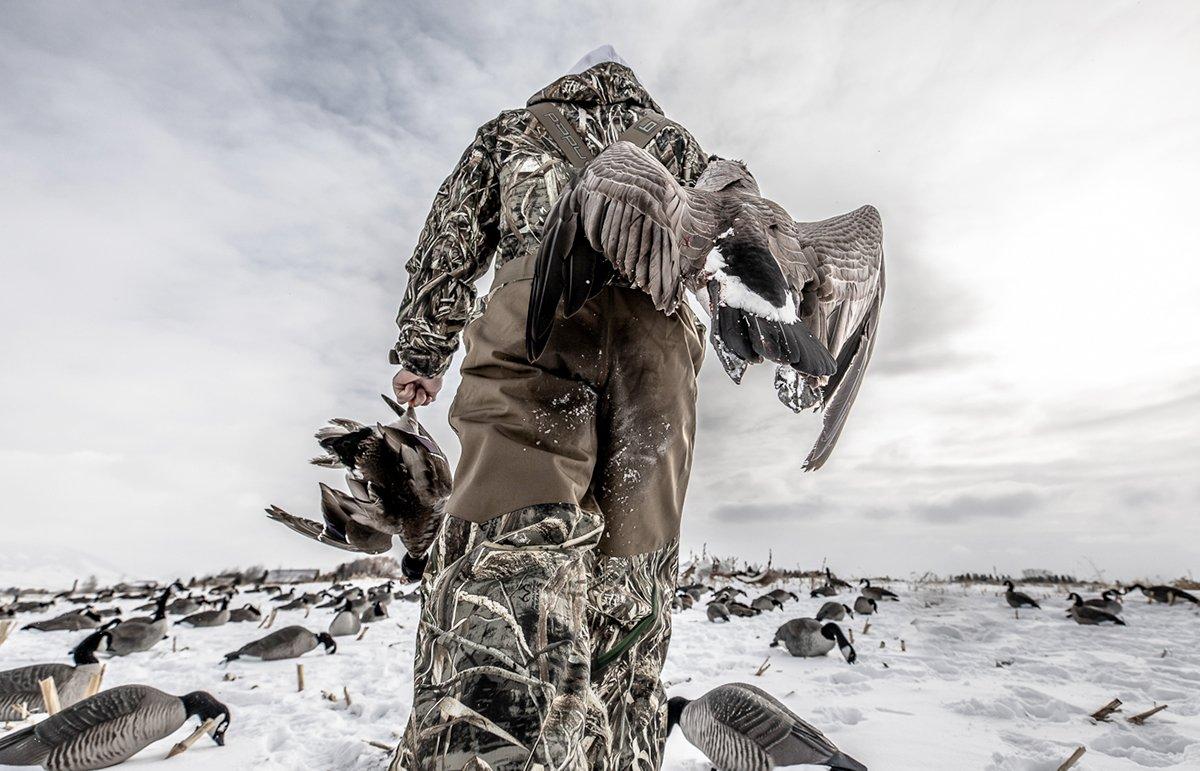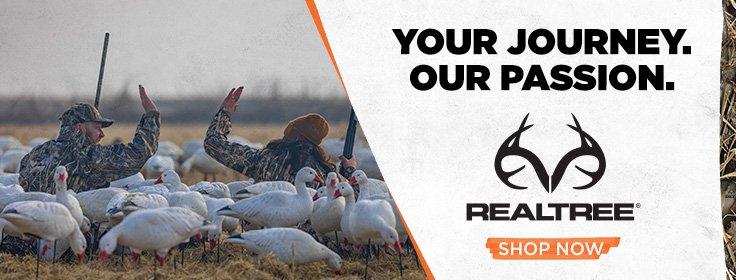Rain, cold, wind and more affect waterfowl — and your hunting
It seems silly to say that ducks are in a constant state of flux. After all, they're involved in massive, extended migrations during fall and winter.
Even when ducks seem static, they continuously switch locations, habits and preferences at a micro level, often because of environmental changes. And when those sometimes-subtle shifts occur, hunters must adapt or be left behind. Consider these examples.
Heavy Precipitation
Ducks love fresh water and are very good at finding and following it. When the heavens open up sufficiently to fill dry sloughs, expand river backwaters or create sheet water in fields, ducks often abandon traditional haunts to hang out in new spots. It's easy to see why. Fresh water opens new forage options for birds, such as crops, grass, acorns,or other goodies. It also lets them access areas where they won't get hassled.
After heavy rains, search hard for new water. Glass low spots in pastures or fields that might have flooded. Look for birds in flooded woods or expanded bayous. Follow the water. You'll find the ducks.
Sudden Freeze
In the North and Midwest, an Arctic blast can freeze many marshes, sloughs and lakes overnight, concentrating ducks in remaining open water. Often, they congregate at inaccessible areas, such as unfrozen portions of large lakes. However, they also use rivers, windswept shorelines, spring-fed creeks and other areas that freeze late. And if you can access those spots, you're in for a good shoot.
Check obvious areas first, such as creeks or rivers that flow into traditional duck habitat, such as marshes, lakes or mill ponds. Watch for birds returning to water after feeding in fields (during frigid conditions, they might only make one flight per day, often during late afternoon). Glass river sandbars and open water in lakes. You'll strike out a lot, but one hit can make your season.
New Chow
Relatively early in fall, it's fairly easy to find geese and puddle ducks feeding in dry fields. After all, they usually have limited food options — often small grains that get harvested early. But as farmers begin to take other crops — think beans and corn — the scene changes wildly. Ducks especially love freshly combined cornfields.
Killing ducks in fields requires lots of work, and that's especially true when birds have loads of forage options. Ideally, work with several partners, each putting on miles at various areas to locate a hot feed. Even on days you hunt, one guy should scout instead.
Ducks can be difficult to see in fields, especially if there's abundant ground cover, such as cornstalks. It's often best to locate roosting and loafing areas, and then try to follow birds as they leave those spots to feed. When you find a decent opportunity, act quickly. Locate the landowner and try to get permission. Waiting for a better option doesn't usually pay.
Wind and Waves
A sudden shift in wind direction and intensity can relocate birds quickly. That's especially true on big water, where ducks will seek leeward shorelines or other windbreaks to avoid being bounced around in whitecaps. But it also holds true in pothole country and other areas with small waters.
Finding these temporary hotspots is simple. Glass protected shorelines or other areas out of the wind. Diving ducks often congregate just close enough to shore to escape rolling waves. Puddlers will sometimes tuck tight against shorelines or even loaf on them.
When you find a concentration of birds, hunt it immediately. Odds are those ducks will relocate when the wind subsides.
People Pressure
No secrets here: Substantial hunting pressure affects ducks like nothing else, blowing them out of many areas or at least changing their patterns and making them far more difficult to kill. Likewise, there are no secrets for hunting pressured ducks. Ideally, you can locate and access areas where birds receive less pressure. If possible, buy or lease such spots. If you can't do either, you must hunt smarter. Avoid the highest-pressure situations, such as weekend mornings. Change your spread and calling tactics so you don't mimic what other hunters are doing. Be extra fussy about concealment. Maybe you won't hang full straps every day, but you'll certainly be ahead of the crowd.
(Don't Miss: 5 Types of Public Duck Openers)
Click here for more Realtree waterfowl hunting content. And check us out on Facebook.








